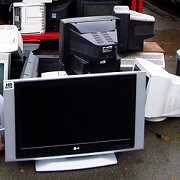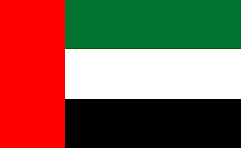We use cookies to personalize content and advertisements, to offer social media functions and to analyze access to our website.
You can revoke the given consent at any time. You can find further information in our Privacy Policy.
Jun 2016
On 17, Jun 2016 | In News @en | By Alisa Maier
Holzgerlingen, June 16 2016
1cc GmbH as one of the leading providers of full-range consulting services for waste and product related environmental compliance, seeks a Country Research Specialist to be based in Irving/Texas or Washington/District of Columbia.
Position Summary This position is responsible for conducting research on legislative changes related to waste management, producer responsibility, restriction of hazardous substances and chemicals, energy efficiency, pollution control and related fields as well as copy right levies for electronic equipment occurring in the Americas region. This job can be based in Irving/Texas or Washington/District of Columbia. Candidates must be able to legally work in the United States.
Responsibilities • Ensuring up to date knowledge of legislative changes in assigned countries through a variety of sources, such as governmental websites and authorities; • Interpreting and documenting new and changed legislation for specific countries; • Work closely with project management to determine regulatory requirements; • Maintain processes required to deliver timely and accurate legislative and regulatory updates; • Be committed to a team-oriented work environment and high quality standards. Qualifications/skill • Strong problem solving and analytical skills; • Legal knowledge would be an advantage; • Ability to perform research using the internet and various data bases; • Proficient with Microsoft Office applications: Word, Excel, PowerPoint; • Must be able to prioritize and work independently; • Must be able to work in an accurate, timely and reliable manner; • Must be bi-lingual: English and either Spanish, Portuguese, Chinese, Korean or Japanese. Education and work experience • Bachelor’s Degree related to law, business administration or management, environmental science or engineering; • 2+ years of work experience in a related field; • Proven ability to research effectively from a computer through the internet. 1cc offer • Challenging scope of duties and involvement in various projects for international customers; • Professional, supportive and motivated team; • We value creativity, initiative and commitment! Please send your application to Johanna Terry (jobs@1cc-consulting.com).Jun 2016
On 17, Jun 2016 | In Events | By Alisa Maier
May 2016
On 30, May 2016 | In Copyright Levies, News @en | By Alisa Maier
 Copyright Levy Systems are gaining popularity: More and more countries worldwide are implementing these mechanisms in order to ensure adequate remuneration for right holders. This being true for several African countries, here some light is being shed on three countries which just activated or amended their copyright levy system by legislative revisions. The following shall give a brief overview of the characteristics.
Morocco: Exemption for private copying and payment obligations had already been introduced by mid-2014. Now, tariffs as well as reporting and payment regulations have been implemented by a Royal Decree on 17 March 2016. While manufacturers obligations arise when putting the product into circulation, importers are required to declare product information, quantity and origin before the product will be imported to Morocco. The entitled collecting society BMDA (Bureau Maroccain du droit d´auteur) authorized customs to collect copyright levies on their behalf. 1cc received stakeholder information that preparations are ongoing and personnel is being trained in order to enforce the legal provisions at customs.
Mauritius: Mauritius is about to revise thoroughly its Copyright Act of 2014. The law provides for a private copying exemption and requires to pay an “equitable remuneration” to authors. However, it leaves room for interpretation for the remuneration. In addition to many organizational issues, for example, with regard to the representation of authors, many questions should be clarified now by law-amendments. Copyright levies on blank media are expressly included in the considerations of a consultative body.
Ivory Coast: Already since 1996, the Copyright Act allows the private copy and requires manufacturers and importers to pay remuneration. Competent authority BURIDA (Bureau Ivoirien du Droit D’Auteur) is empowered “[…] To collect and distribute all rights to remuneration recognized by the Act […] in particular the remuneration for private copying, equitable remuneration, the remuneration for reprographic reproduction […]”
We will keep you updated on the further developments.
Copyright Levy Systems are gaining popularity: More and more countries worldwide are implementing these mechanisms in order to ensure adequate remuneration for right holders. This being true for several African countries, here some light is being shed on three countries which just activated or amended their copyright levy system by legislative revisions. The following shall give a brief overview of the characteristics.
Morocco: Exemption for private copying and payment obligations had already been introduced by mid-2014. Now, tariffs as well as reporting and payment regulations have been implemented by a Royal Decree on 17 March 2016. While manufacturers obligations arise when putting the product into circulation, importers are required to declare product information, quantity and origin before the product will be imported to Morocco. The entitled collecting society BMDA (Bureau Maroccain du droit d´auteur) authorized customs to collect copyright levies on their behalf. 1cc received stakeholder information that preparations are ongoing and personnel is being trained in order to enforce the legal provisions at customs.
Mauritius: Mauritius is about to revise thoroughly its Copyright Act of 2014. The law provides for a private copying exemption and requires to pay an “equitable remuneration” to authors. However, it leaves room for interpretation for the remuneration. In addition to many organizational issues, for example, with regard to the representation of authors, many questions should be clarified now by law-amendments. Copyright levies on blank media are expressly included in the considerations of a consultative body.
Ivory Coast: Already since 1996, the Copyright Act allows the private copy and requires manufacturers and importers to pay remuneration. Competent authority BURIDA (Bureau Ivoirien du Droit D’Auteur) is empowered “[…] To collect and distribute all rights to remuneration recognized by the Act […] in particular the remuneration for private copying, equitable remuneration, the remuneration for reprographic reproduction […]”
We will keep you updated on the further developments.
May 2016
On 24, May 2016 | In Events | By Alisa Maier
May 2016
On 11, May 2016 | In News @en | By Alisa Maier
Apr 2016
On 20, Apr 2016 | In News @en | By Alisa Maier
Mar 2016
 Compared to the German ElectroG of 2005, the revised ElectroG foresees important changes. One difference refers to the fact that according to §§ 11 and 24 governments are empowered to establish more detailed legal requirements via ordinances.
Based on § 24 ElectroG and asked by the Federal Environmental Ministry, the Federal Environmental Agency (UBA) kicked off the preparatory work for a so-called treatment ordinance. For doing so, UBA organized a working committee and four working groups. Stakeholders such as the Federal Environmental and the Federal Ministry for economic affairs, representatives of the German Bundesländer, the associations of the municipalities, industry associations and representatives of the academia were invited to join them.
It is the political objective of the new treatment ordinance to establish requirements for the treatment of WEEE aiming at improving the recuperation of critical secondary raw material such as rare earth metals and the withdrawal of harmful substances. The first draft of the treatment ordinance shall be available within the next 12 to 18 months.
We will keep you updated about this new legislation Project.
Compared to the German ElectroG of 2005, the revised ElectroG foresees important changes. One difference refers to the fact that according to §§ 11 and 24 governments are empowered to establish more detailed legal requirements via ordinances.
Based on § 24 ElectroG and asked by the Federal Environmental Ministry, the Federal Environmental Agency (UBA) kicked off the preparatory work for a so-called treatment ordinance. For doing so, UBA organized a working committee and four working groups. Stakeholders such as the Federal Environmental and the Federal Ministry for economic affairs, representatives of the German Bundesländer, the associations of the municipalities, industry associations and representatives of the academia were invited to join them.
It is the political objective of the new treatment ordinance to establish requirements for the treatment of WEEE aiming at improving the recuperation of critical secondary raw material such as rare earth metals and the withdrawal of harmful substances. The first draft of the treatment ordinance shall be available within the next 12 to 18 months.
We will keep you updated about this new legislation Project.
Mar 2016
On 01, Mar 2016 | In News @en | By Alisa Maier
 The United Arab Emirates (UAE) has been working on a new legislation for the restriction of the use of hazardous substances in electrical and electronic equipment. Three different draft versions have been discussed since last summer. Now, a finalized draft version has been submitted to the Federal National Council and is expected to be approved soon. According to the draft regulation, the final law shall enter into force one year after its publication in the UAE Official Gazette.
Basically, the UAE RoHS draft regulation is based on EU RoHS Directive 2011/65/EU. As in the EU, the following substances are intended to be restricted, with identical thresholds: Lead, Mercury, Cadmium, Hexavalent chromium, Polybrominated biphenyls (PBB), Polybrominated diphenyl ethers (PBDE) as well as the four phtahaltes which were added in March 2015: Bis(2-ethylhexyl) phthalate (DEHP), Butyl benzyl phthalate (BBP), Dibutyl phthalate (DBP), Diisobutyl phthalate (DIBP).
Despite the similarities, there are differences with respect to transition periods and compliance requirements, as e.g. registration and certification duties. It is prohibited to display or sell any products in the UAE unless they are registered under ECAS or have a certificate or mark accepted by ESMA.
For more information please contact us at info@1cc-consulting.com.
The United Arab Emirates (UAE) has been working on a new legislation for the restriction of the use of hazardous substances in electrical and electronic equipment. Three different draft versions have been discussed since last summer. Now, a finalized draft version has been submitted to the Federal National Council and is expected to be approved soon. According to the draft regulation, the final law shall enter into force one year after its publication in the UAE Official Gazette.
Basically, the UAE RoHS draft regulation is based on EU RoHS Directive 2011/65/EU. As in the EU, the following substances are intended to be restricted, with identical thresholds: Lead, Mercury, Cadmium, Hexavalent chromium, Polybrominated biphenyls (PBB), Polybrominated diphenyl ethers (PBDE) as well as the four phtahaltes which were added in March 2015: Bis(2-ethylhexyl) phthalate (DEHP), Butyl benzyl phthalate (BBP), Dibutyl phthalate (DBP), Diisobutyl phthalate (DIBP).
Despite the similarities, there are differences with respect to transition periods and compliance requirements, as e.g. registration and certification duties. It is prohibited to display or sell any products in the UAE unless they are registered under ECAS or have a certificate or mark accepted by ESMA.
For more information please contact us at info@1cc-consulting.com.
Mar 2016
On 01, Mar 2016 | In News @en | By Alisa Maier
Feb 2016
On 26, Feb 2016 | In Events | By Alisa Maier